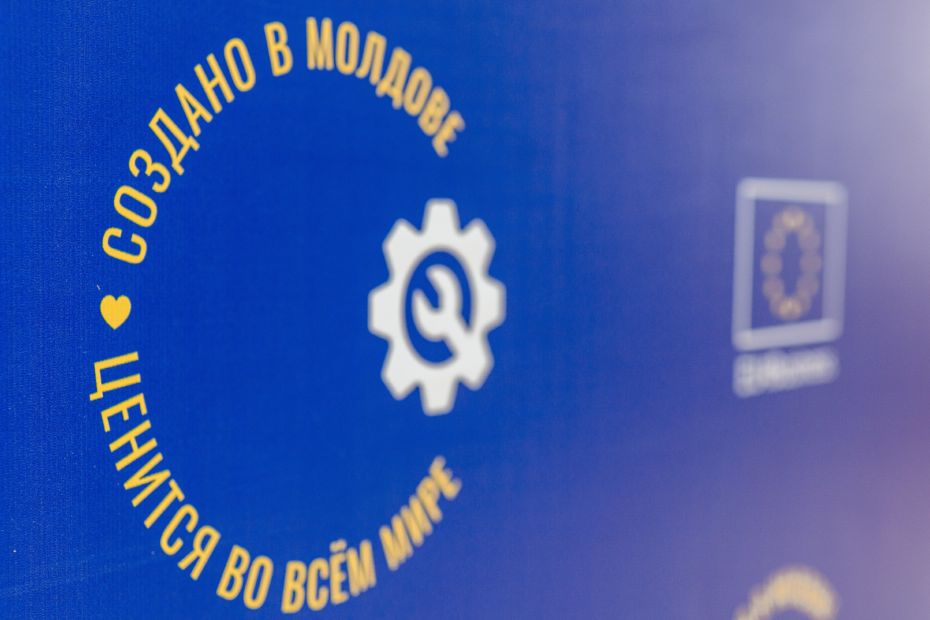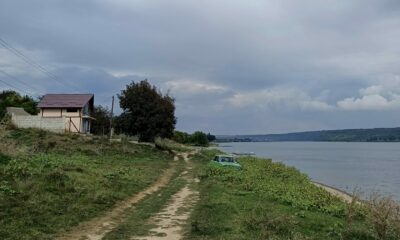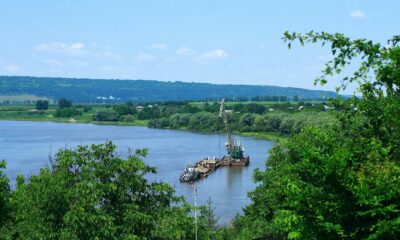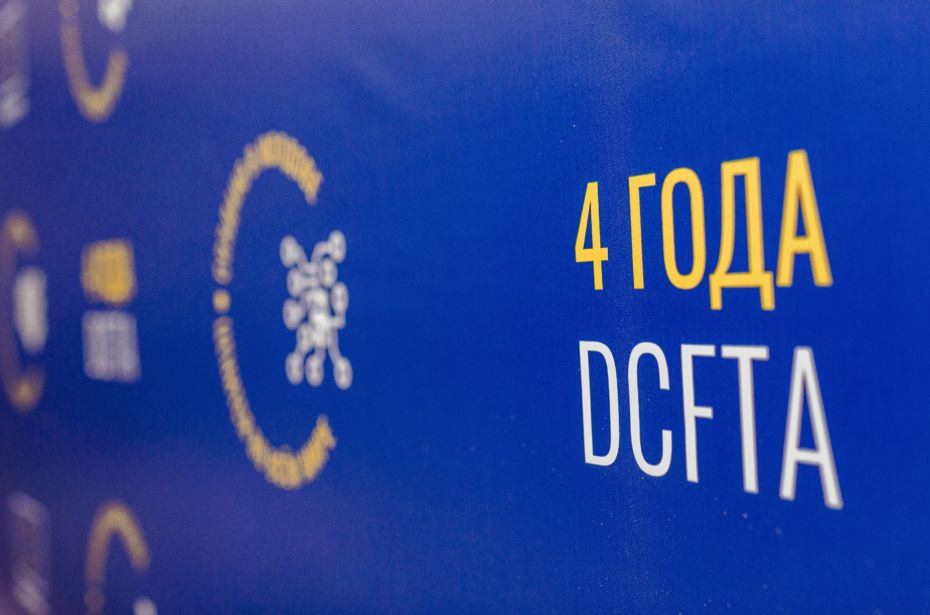
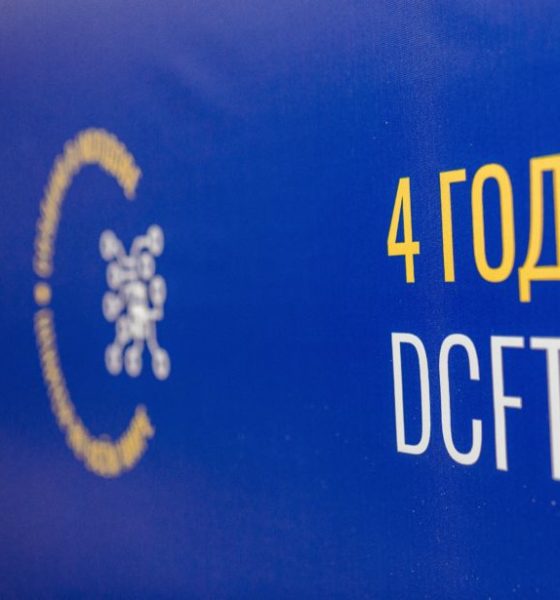
Economy
4 Years of DCFTA. This is what has changed since Moldova signed the Association Agreement with the EU
Four years ago, Moldova and the European Union signed the Association Agreement, which led to the creation of a Deep and Comprehensive Free Trade Area (DCFTA) between both parties. The opportunities offered by DCFTA in these years have allowed export growth and the creation of at least 15,000 new jobs in our country.
To celebrate this anniversary, several regional businesses, business associations, and entrepreneurs met in Comrat. Businessmen from Gagauzia spoke about how the EU helped them to develop their business and what impact the implementation of DCFTA had on their work.
What is DCFTA, really?
In essence, the creation of a Deep and Comprehensive Free Trade Area was aimed at removing tariff and non-tariff barriers of trade between Moldova and the EU. According to an Expert-Grup analysis, after four years of DCFTA implementation, the European Union remains the most important and reliable trading partner for domestic producers.
More than two-thirds of all Moldovan exports reach the EU and their net increase reached 367 million euros in the period 2015-2017. This increase led to the creation of at least 15,000 new jobs in our country. Expert-Grup specialists believe that in the absence of DCFTA, our state budget would have lost over 7 billion lei in revenue and the private sector would have lost at least 320 million euros in fixed capital investment.
- 2/3 of exports ⇒ EU
- ⇑ 367 million euros increase
- 15,000 new jobs
- ⇓ 7 billion lei from the budget – LOSSES AVAILABLE
- ⇓ 320 million euros from the private sector – losses EVITA
“The potential of opportunities offered by DCFTA for Moldovan enterprises is yet to be fully explored. Free access to the European Union market gives companies the opportunity to grow, and we encourage them to make every effort to do this,” says Vasile Plămădeală, Trade Counselor at the EU Delegation in Moldova.
“It is therefore essential that the Moldovan authorities support businesses in fully capitalizing on the benefits offered by DCFTA by creating better business conditions and implementing the necessary trade-related reforms,” he adds.
“What soldier does not want to be general?”
Ivan Cambur was of the same opinion, Executive Director of the Gagauzia Business Association “Next”. He says that DCFTA has so far been a positive experience for businessmen in Gagauzia. “Many companies in the region have received EU aid. I think this agreement provides a great incentive for young people to stay in their country and to invest. It is important that entrepreneurs with start-up ideas and the beginners are supported,” says Ivan Cambur.
He believes that in the last four years, entrepreneurs from Gagauzia and from the rest of the country have been able to find out how many financing opportunities exist and especially that they are accessible. In addition, people who have had the courage to set up a business have understood that there are real chances to reach international markets.
“What soldier does not want to be general? Many companies have not looked at their business as an international one, but lately they have begun to think and turn to outside markets. I notice that access to information has increased. During these years many study visits were organized abroad.”
Businesses from different regions of the country, present at the Comrat event, shared their experience of accessing European grants and using the opportunities offered by DCFTA. Larisa and Gheorghe Cerven, owners of a small vineyard in Vulcanesti, Gagauzia, tell the story of how they managed to reduce their energy bill thanks to a European grant. With the money they received, they bought and installed solar panels on the roof of their inn. “In addition, thanks to this support, we have managed to create five new jobs in winery and five other jobs in the tourist inn. Our workers are all inhabitants of Vulcanesti and now they can build a future home,” says Larisa Cerven.
The potential of DCFTA has not been explored fully
Contrary to expectations, the biggest effects of trade liberalization with the EU were observed in the case of agri-food exports, although initially these products were not considered sufficiently competitive on the EU market. Thus, exports of agri-food increased by 44%, compared with the 11% increase in industrial exports, according to the Expert-Grup analysis.
The free trade agreement also had more profound macroeconomic implications, boosting economic growth, budget revenues, imports and investment, and employment. Thus, the DCFTA’s contribution to growth in exports to the EU, estimated at 410 million dollars between 2015-2017, has boosted GDP growth by 7% or about 1.5 billion dollars.
Economists say the potential of DCFTA has not yet been fully explored, especially since the first implementation period has been marked by the banking crisis, the political crisis, and the drought in 2015. “Therefore, in the years to come, the effects of DCFTA will be much more significant”, declared the Expert-Grup experts.
Economy
Moldova will receive a disbursement of 36 million euros as part of the the Economic Recovery Plan
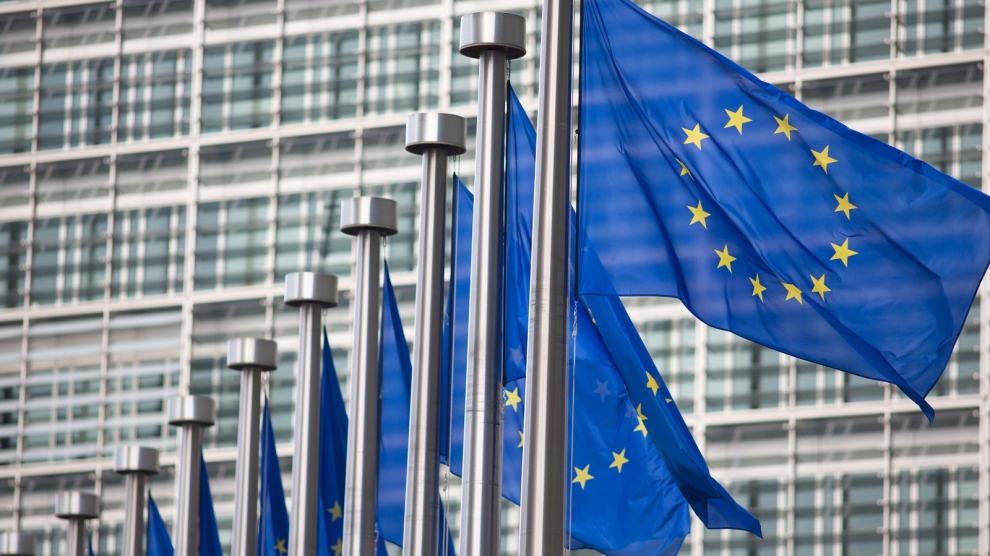
This week, the European Commission approved the disbursement of 36 million euros in grant money for the Republic of Moldova. The announcement was made by Deputy Director-General for Neighbourhood Policy and Enlargement Negotiations at the European Commission, Katarina Mathernova, who paid an official visit to the Republic of Moldova between September 13-15, together with Managing Director for Russia, Eastern Partnership, Central Asia, Regional cooperation and OSCE, at the European External Action Service, Michael Siebert.
The EU officials had meetings with President Maia Sandu, Minister of Foreign Affairs and European Integration, Nicu Popescu, Speaker of Parliament, Igor Grosu, Prime Minister of the country, Natalia Gavrilita, as well as key representatives of Government, international financial institutions and the civil society, according to a press release issued by the Delegation of the European Union to the Republic of Moldova.
Beside such topics as the EU-Moldova relations and prospects, the priorities of the reform agenda of the new Moldovan Government, preparations for the Eastern Partnership Summit at the end of the year and the Transnistrian conflict settlement, the officials also discussed the EU assistance in support of reforms and the Economic Recovery Plan for Moldova, which was announced in June with a total EU support of 600 million euros over the next 3 years.
“The first measures under the Economic Recovery Plan will shortly materialize, with the expected disbursement of 36 million euros in grant money under budget support programmes to support the authorities’ efforts to fight against the consequences of the pandemic. Moldova can count on EU’s assistance on its path to reforms and to recovery, bringing tangible results to citizens,” Katarina Mathernova stated.
The plan is based on assistance provided by the European Union through various bilateral and regional instruments, aiming to mobilize the funds in the form of grants, loans, guarantees and macro-financial assistance.
“The Economic Recovery Plan for the Republic of Moldova involves much more, not just this financial support provided immediately. It must help digital transformation, strengthen infrastructure, energy efficiency, education and support small and medium-sized enterprises,” the EU official also said.
As Prime Minister Natalia Gavrilita informed, “The Economic Recovery Plan and the 5 flagship initiatives for Moldova in the Eastern Partnership will directly contribute to the reform and consolidation of institutions, stimulate long-term socio-economic development, bring direct benefits to citizens, and unleash new economic opportunities through promoting the green agenda and digitization. Small and medium-sized enterprises (SMEs) have been hit hard by the crisis. Promoting and diversifying access to finance and reducing collateral requirements will be essential in supporting economic operators. We are grateful to the EU partners who will launch two programs to support 50 000 independent Moldovan SMEs to adapt to the new conditions.”
President of the Republic of Moldova, Maia Sandu, welcomed the decision of the European Union to disburse about 745 million lei in grant money, as the official page of the President’s Office announced. “EU support comes after a long period of freezing of European assistance, caused by former governments. We managed to relaunch the political dialogue with the European Union and resume financial assistance. The Republic of Moldova is gradually regaining the trust of its strategic partners. This European support is also a signal of encouragement for the new Government team in its commitment to clean up the institutions, fight corruption and launch development programs in the country,” said Maia Sandu.
Photo: unknown
Economy
Romania and Moldova signed a partnership memorandum pledging to cooperate in promoting their wines
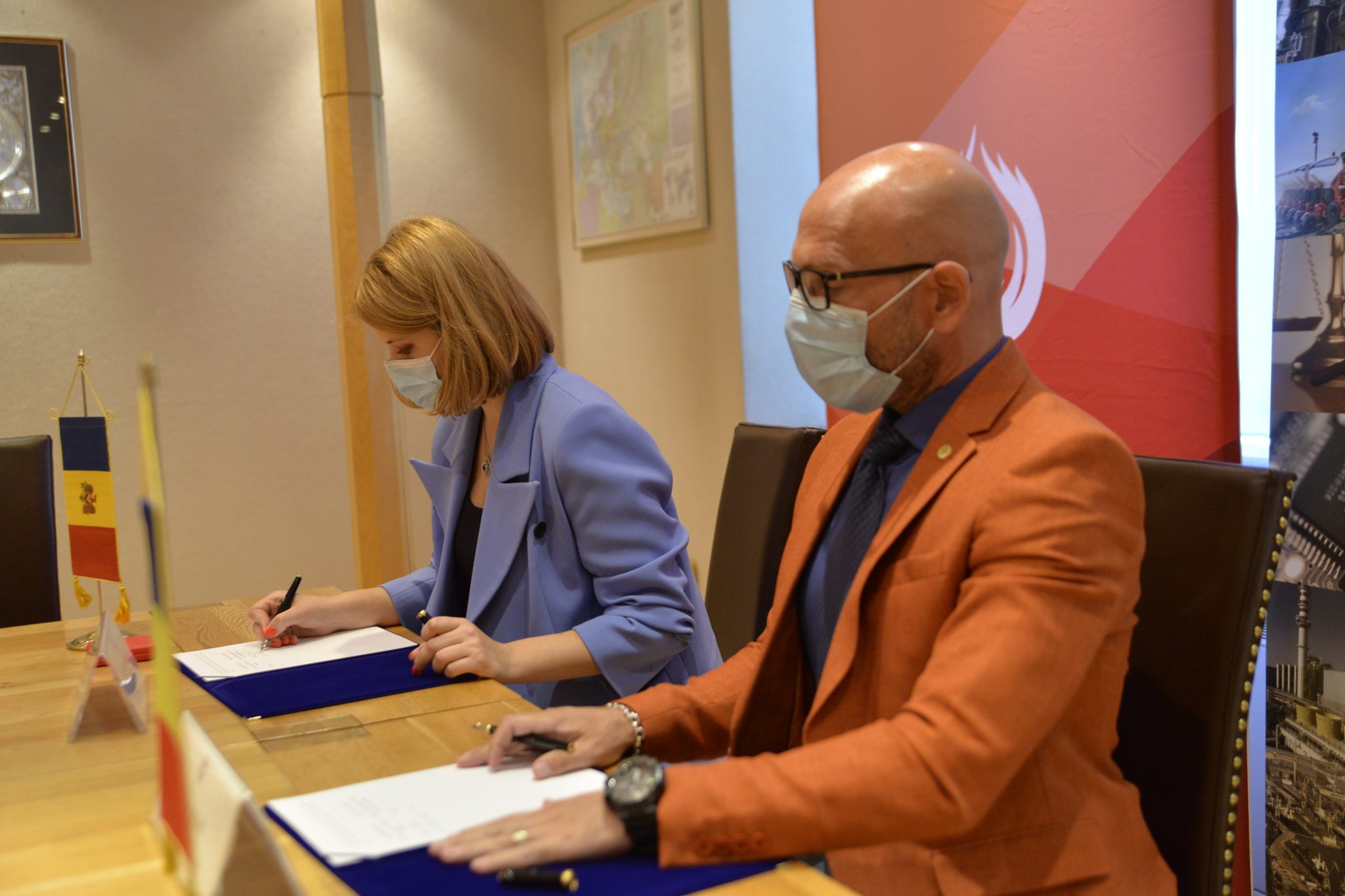
The Chamber of Commerce and Industry of Romania (CCIR) and the National Office for Vine and Wine (NOVW) of the Republic of Moldova signed, last week, a memorandum of cooperation on organizing joint promotional activities in the markets of common interest, as the CCIR announced.
China, Japan or the USA are just some of the markets targeted by the Romanian and Moldovan institutions. The memorandum also involves advertising activities for wines from common indigenous varieties, promoting the oeno-tourist region, developing a tourist route in the two states, exchange of experience, study visits, and mutual support in identifying new export opportunities. “We are very confident that this collaboration between our organizations will lead to sustainable economic growth and a higher degree of well-being among Moldovans and Romanians,” claimed Deputy Secretary-General of CCIR, Bogdan Visan.
On the other hand, Director of the NOVW, Cristina Frolov, declared that no open competition with Romania is aimed at the governmental level of the Republic of Moldova. “This request for collaboration is a consequence of the partnership principle. Romania imports 10-12% of the wine it consumes, and we want to take more from this import quota. Every year, the Romanian market grows by approximately 2.8%, as it happened in 2020, and we are interested in taking a maximum share of this percentage of imported wines without entering into direct competition with the Romanian producer,” the Moldovan official said. She also mentioned that Moldova aims at increasing the market share of wine production by at least 50% compared to 2020, and the number of producers present on the Romanian market – by at least 40%.

Source: ccir.ro
**
According to the data of the Romanian National Trade Register Office, the total value of Romania-Moldova trade was 1.7 billion euros at the end of last year and over 805 million euros at the end of May 2021. In July 2021, there were 6 522 companies from the Republic of Moldova in Romania, with a total capital value of 45.9 million euros.
The data of Moldova’s National Office of Vine and Wine showed that, in the first 7 months of 2021, the total quantity of bottled wine was about 27 million litres (registering an increase of 10% as compared to the same period last year), with a value of more than one billion lei, which is 32% more than the same period last year. Moldovan wines were awarded 956 medals at 32 international competitions in 2020.
Photo: ccir.ro
Economy
Moldova’s hope to be a top walnut exporter and its main difficulties
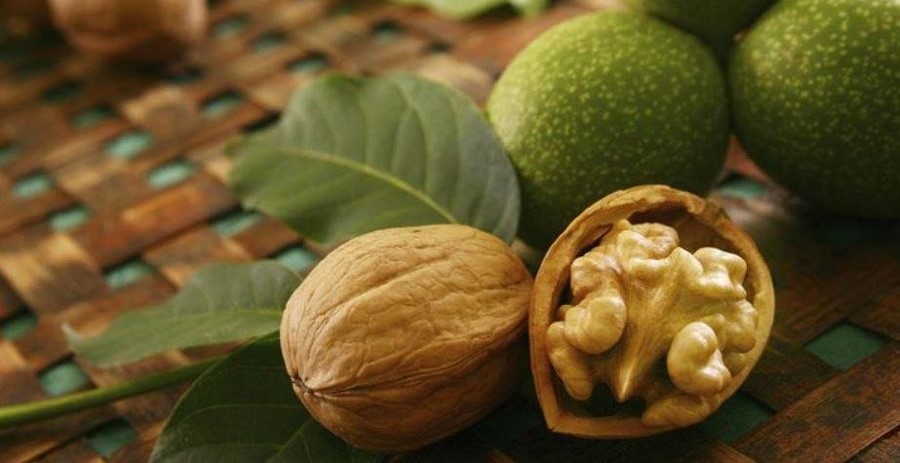
The Republic of Moldova has perfect weather conditions for growing walnut trees, that creating a great potential of walnut production and trade, especially on international markets, where the demand is way higher than the product’s supply. National and international experts believe that the country’s walnut production industry is on the verge of important transformations, which could lead to increased yields, quality and competitiveness worldwide.
According to authorities, Moldova exports 34-35 thousand tons of walnuts in shell, which is about 7% of the total export of fruit and 5% of the total export of horticultural products. The export value is assessed as being $120 million, that being 57-60% of the total fruit export value and about 50% of horticultural export value. Most of walnut crops are exported to the EU countries, such as France, Germany, the Netherlands, Romania and Austria. The country’s exports were among the world’s top 10 when it comes to the highest dollar value of the product during 2020.
Viorel Gherciu, Minister of Agriculture and Food Industry, pointed out that the production in the domestic walnut industry has increased by 55% in the last five years, which ranks Moldova among the main producers in the world.
“The biggest opportunity for this industry is that we are in the geographical proximity of the largest walnut import area in the world, which is the European Union, with almost 40% of total imports in the world. We are on the EU border, with privileged relations, with an Association Agreement. We already enjoy a good relationship in working with European importers, they trust our processors. A very close collaboration has been created and this is, in fact, the guarantee for those who invest in the area,” claimed the president of the Walnut Producers Association, Oleg Tirsina.
The data provided by the National Bureau of Statistics show that there are 34.7 thousand hectares of walnut plantations in the country. 20.90 hectares are represented by orchards. 75% of planted orchards are formed of old varieties trees. 30-35% of the exported production comes from orchards, the rest comes from individual farmers and plantations along the roads. This means that the quality of walnut production is not at its maximum potential. Developing commercial plantations through orchards modernization and extension of walnut varieties would provide double yield and better quality, experts say.
Governmental support in the form of subsidizing solutions, foreign investments and credit options are indispensable for the industry development. One of the financing options is the credit line of the European Investment Bank Project. Since 2016, 15 producers and processors of nuts, almonds and hazelnuts have benefited from these loans with the total amount of investments worth 8.7 million euros. A further extension of the project would provide another 60 million euros for the modernization of the horticultural sector in general and for harvesting organic walnuts in particular.
Photo: heymoldova.com

